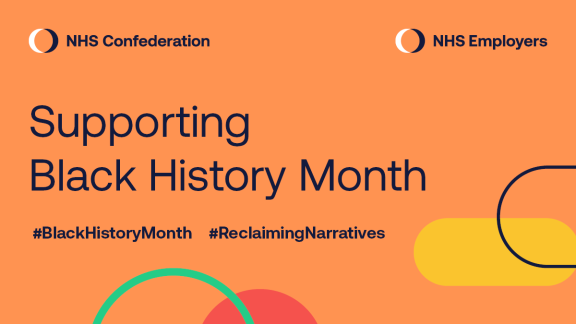Supporting Black History Month 2024

Black History Month is an opportunity to honour the achievements, history and culture of black people and their invaluable contribution to society and the healthcare system.
This year’s theme, ‘Reclaiming Narratives’, highlights the importance of sharing stories of black history and culture while correcting historical inaccuracies of black heritage. It’s about challenging the narratives that have long overlooked the contributions and achievements of black people.
Joan Saddler OBE, director of partnerships and equality, NHS Confederation said;
“This month, we reclaim the narrative of the black pioneers who helped build the NHS into the anchor institution which underpins the fabric of our society. From those who arrived on HMT Empire Windrush to take up posts within the newly founded NHS, to our colleagues who have battled institutional racism to become leaders within the NHS today, their contributions are invaluable.
At a time when our black, Asian, and minority ethnic (BAME) colleagues are facing high levels bullying, harassment, and abuse, it is vital we reclaim the narrative and celebrate the crucial work they do in our organisation.
I especially want to urge our member chairs, CEOs and board members to support and encourage our local network leaders, supporters and staff from racialised communities to attend our annual Black History Month lecture given by Professor Stephani Hatch. The recent racist riots remind us of the practical need to tackle racism and that we can stand together to do so. Let us come together to recognise their resilience and commitment, ensuring that their stories are told, and their voices are heard.”
Further information
Visit the NHS Employers’ Black History Month page to find out what else is happening across the NHS and access resources that support race equality in the workplace.
The NHS Race and Health Observatory (RHO), hosted by the NHS Confederation and supported by NHS England and NHS Improvement, has been established to investigate the impact of race and ethnicity on people’s health.
Follow our social media channels if you would like to find out more:
LinkedIn: BME Leadership Network
X: @NHSConfed and @NHSC_BMEleaders
You can also search the hashtags #BlackHistoryMonth and #ReclaimingNarratives



